HOTS DOCS 2015: “THE BEAVER TRILOGY PART IV”
Let me just be upfront about buy levitra by mail one thing: I am a BEAVER TRILOGY fanatic. It’s still confounding to me how much of a secret handshake the film seems to be. A series of films made by indie filmmaker Trent Harris (RUBIN & ED) about the same subject – a strange young man from Beaver, Utah who went by the name “Groovin’ Gary” – made over six years (1979-1985) and finally compiled into a feature length program for a Sundance premiere as THE BEAVER TRILOGY in 2001, the film has never been commercially levitra online canada immediate delivery available but has developed a fervent cult following.
Harris says early on in BEAVER TRILOGY IV that he hates talking about THE BEAVER TRILOGY. Unfortunately talking about it endlessly is inevitable because encapsulating it in a succinct logline is actually impossible; to describe THE BEAVER TRILOGY is to necessarily hunker down for a long story. It is a film everyone loves, but it’s nearly impossible to sell them on it in the first place, even though it stars two legendary idiosyncratic actors – Sean Penn [in BEAVER KID 2] and Crispin Glover [in THE ORKLY KID]. But you know when watching THE BEAVER TRILOGY that you are not getting the full story, and possibly not the real story, and that’s where Brad Besser’s BEAVER TRILOGY IV comes order cialis online without prescription in. While positioning itself as a sequel of sorts, the film is the second straight documentary in the series, and a self-reflexive one at that – one that looks at the progression of THE BEAVER TRILOGY as a series of connected films by a seemingly-obsessed director, while also investigating the real “Beaver Kid” at the heart of the story.
Admittedly THE BEAVER TRILOGY IV has its moments of clunkiness and tangents that detract from the strength of its central focus, but this hardly matters since ultimately there is one reason anyone would go to a documentary about THE BEAVER TRILOGY, and that is to find out the true story of Dick Griffiths, the original “Beaver Kid” aka “Groovin’ Gary”. And on that count, purchase cheap viagra the film mostly satisfies. The doc leaves many questions unanswered, but it was rewarding to see that Griffiths had a life and friends outside of the mythology Harris had crafted for him, even though a certain caution is clearly being exercised on the part of Griffiths’ family members in interviews.
I best online generic levitra latch onto these kinds of stories. I can list dozens of peripheral cultural figures I have been successively fascinated with – from Italian bit-player Luciano Rossi to unsung pop genius Peter Ivers to “The Beaver Kid” himself – because ultimately it is tragic that they do not know how much they are loved, that they do not see the rippling impact their life has for others, and that they are often denied the success of their peers.
I spoke with Brad Besser during Hot Docs about his role in the continually-evolving story of The Beaver Kid.
++++
KJ: So you took a class with Trent Harris and that’s how you got into this whole thing – did you already know who he was?
BB: Absolutely. I’m originally from Salt Lake City, Utah, and I saw the film RUBIN & ED. I watched RUBIN & ED like I watched DUMB & DUMBER. I loved it and played it for all my friends, and we would all quote “My cat can eat a whole watermelon!” It was a fun film, and eventually I realized the director was from Utah, he lived in Salt Lake City and I found out he was going to teach a screenwriting class, so I was like, I’ve gotta take that! So I went into the class wide eyed, this guy was a celebrity to me. He was a guy who went out there and did it. Little did I know that he was only doing the class because he had no money at all, because he’d had a bit of a Hollywood flame-out. Which I’m sure he would now say is a blessing. But I took the class, I was young and kind of nervous and I went up to him after class and asked “how do I become a director?” and he said “just get a camera and make a movie!” So I made a movie about him.
KJ: A different movie?
BB: Yeah, a different movie. I was just testing cameras and thought I should make a film about this guy, he’s got a really interesting story. So in the class he showed the three films, this is before they were connected as THE BEAVER TRILOGY, this was the year 2000. So I had just graduated high school and took this class, which was about the progression a filmmaker goes through and where an idea might come from. I was really impressed that he’d worked with Sean Penn, and thought Crispin Glover was really good in the third one [THE ORKLY KID], but it was really the first one, with the kid in the parking lot, he doesn’t even have to say anything and he’s just funny. Taking pictures, walking in his bellbottoms, that guy is awesome. And Trent was just out there filming and captured what you can never really re-enact. Which in a way, is probably why the other two films fall a little bit flat.
KJ: I disagree. I think the second one falls a bit flat, but THE ORKLY KID is great. THE ORKLY KID was the first one I saw – it used to play at this theatre The Blinding Light!! in Vancouver all the time in the 90s. It had a premiere in LA and played around on film, and a friend of mine is in the film, he plays Merrill, the best friend.
BB: So, strange question: what happened to him? Did he go on to do more acting?
KJ: He was already an actor, he’d been a child actor. In the 60s he was on the TV show LAND OF THE GIANTS, and around the time of THE ORKLY KID he was in CLASS OF 1984. A lot of the people who are in THE ORKLY KID were at the beginning of their ascension into 80s fame – E.G. Daily, Courtney Gains. So anyways, I had seen that movie in the 90s, and it’s very, very different from the original BEAVER KID film. It’s much more of a straightforward narrative, more fictionalized and in a way it’s like an Afterschool Special.
BB: It’s interesting that you say that, because some people hate that one because it’s too “Hollywood”. They like the Sean Penn version [BEAVER KID 2] because it’s the closest re-enactment.
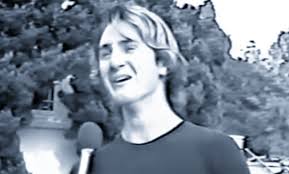 KJ: The interesting thing about the Sean Penn one – because I had always heard that Sean Penn was really the holdup, the reason the movie had never been available – but the thing no one talks about is how the character of Spicoli from FAST TIMES AT RIDGEMONT HIGH wouldn’t exist if it hadn’t been for “Groovin Gary”. The vocal mannerisms of Spicoli are entirely from the Beaver Kid.
KJ: The interesting thing about the Sean Penn one – because I had always heard that Sean Penn was really the holdup, the reason the movie had never been available – but the thing no one talks about is how the character of Spicoli from FAST TIMES AT RIDGEMONT HIGH wouldn’t exist if it hadn’t been for “Groovin Gary”. The vocal mannerisms of Spicoli are entirely from the Beaver Kid.
BB: Yeah. Their laughs are unmistakably similar.
KJ: Right, and Spicoli went on to become an iconic character, but it’s clearly riffing on this other guy. And that to me is one of the saddest parts about it. That in a way Richard Griffiths did achieve fame and he never got to appreciate any of it.
BB: To be honest I can’t even necessarily go into any of that. Sean Penn is the actor of his generation, because he’s a wild-eyed, crazy method actor. If Dick Griffiths had that chance, it would have been interesting to see what would have happened if his family had encouraged him to chase the dream, and whether he made it or didn’t make it, I have no idea. But I could imagine him going to LA and with his sweet persona just being gobbled up by the Hollywood system.
KJ: Do you think it’s because of his experience being filmed for THE BEAVER TRILOGY that his confidence was shaken and that his family discouraged him from going?
BB: Sure, yeah. I mean I think there were a lot of people in Beaver who were confused. The Olivia Newton-John stuff leaves a lot of questions, especially in the predominantly Mormon Beaver, Utah. That was the moment where there was no turning back. Because his friends and family, while they were laughing, they were probably also telling him that it wasn’t the right thing to do. My interpretation of it is that his family loved him but they weren’t really open to a lot of the ideas that he wanted to pursue. And I think he felt really bad about dressing up as Olivia Newton-John, he felt very misunderstood, and he probably had some people in town who said some things that really stuck with him. And he thought it was so bad that he tried to kill himself.
KJ: I always thought those were fictional additions to the movies [BEAVER KID 2 + THE ORKLY KID], and I never understood why Trent Harris did it, I always thought it was really mean to make a movie inspired by someone’s life and then add sequences where they attempt suicide. It wasn’t until I saw your movie that I knew that had happened in real life. But Harris really didn’t seem to want to admit that this was based on something that had really happened.
BB: But – in the fictional versions he doesn’t shoot himself, he stops. In THE BEAVER KID 2 it’s because his friend calls and says the performance was really funny, and in THE ORKLY KID he just decides to get out of Beaver. So you can see, that’s Trent trying to change what really happened. You know, like tell the guy he did a good job! Tell him it was funny! And even though Trent never planned to show him the films, he was in a way saying, follow your dream. If you want to get out of Beaver and go to Hollywood, then do it.
KJ: So he was trying to give Dick the happy ending that he didn’t get.
BB: But he was only giving him the happy ending in his own mind, because he kept all the films secret so that Dick would never see them.
KJ: I always wondered how much guilt played into the continuation of that story, the fact that he kept going back to it.
BB: Well, you can imagine it would be a pretty traumatic thing. If you worked at a television station, and the station is doing some pretty interesting things, and you think this guy’s interesting but it’s kind of borderline exploitation – I mean, why would you go to Beaver, Utah to film a talent show where a guy’s going to dress up as “Olivia Newton-Dawn”? Because you think it’s going to be funny, and you think this guy’s funny. But then three days later he shoots himself – I mean, that would stick with you. It probably still sticks with Trent. That’s probably why he never got up the gumption to make Part IV. He didn’t want to do anything that would give Dick the same sense of failure.
KJ: So how does you making Part IV preclude Trent from making Part IV?
BB: Oh, Trent’s done with it. I want to make Part V!
++++
THE BEAVER TRILOGY PART IV has its last Hot Docs screening today at 12:30pm at TIFF Bell Lightbox Details and tix HERE.

 May 3, 2015
May 3, 2015 
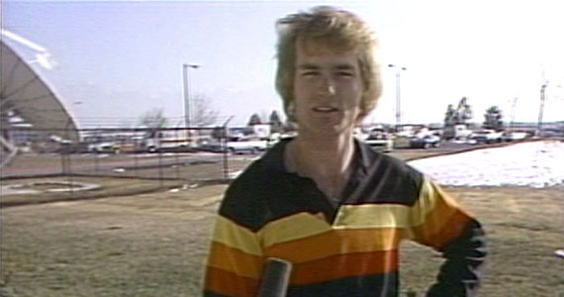
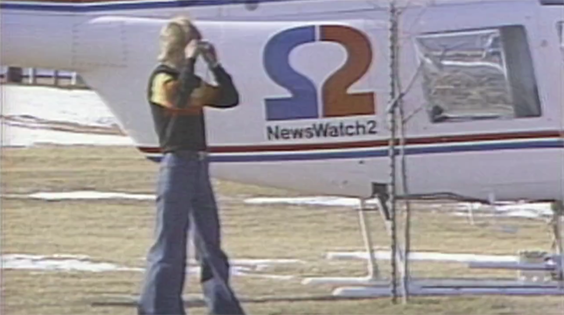
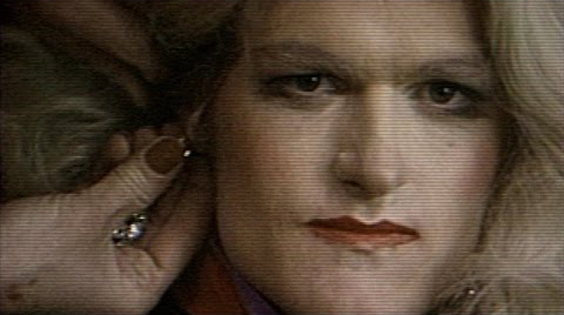

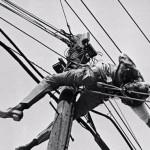
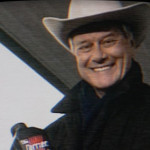
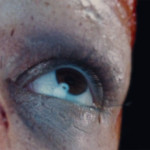



Comments
Should I be certain I’m not the 1st one to ask… How did the Beaver Kid ultimately die – in real life?
8 yearss agoAm I to realize that this (the mystique as to how/why he died) is the essence of the story? Admittedly, this aspect is compelling and any insight would be greatly appreciated.
MG